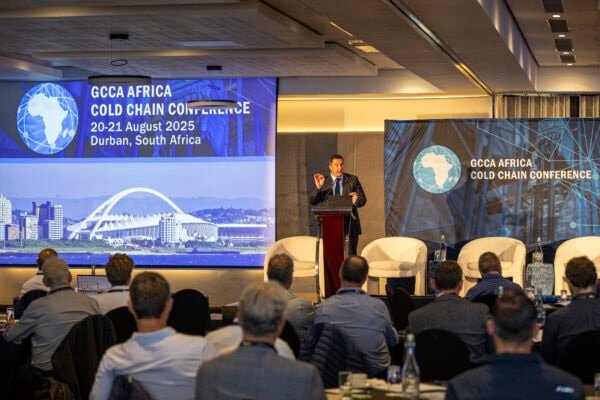South Africa’s Minister of Agriculture, John Steenhuisen, addressed the GCCA Africa Cold Chain Conference on August 21, 2025, in Durban, emphasizing the importance of cold chain infrastructure for the continent’s food security and economic development.
In his speech, Steenhuisen noted that Africa’s rapidly growing population—projected to surpass two billion by 2050—makes food security a central policy priority. He pointed to South Africa’s own population growth from 55.4 million in 2015 to over 62.3 million in 2025 as a reflection of this trend. “The cold chain is at the heart of answering it,” he said, underlining its role in reducing post-harvest losses, which can reach up to 40% in sub-Saharan Africa for perishables.
Steenhuisen highlighted the economic impact of such losses, linking them to missed market opportunities and income for smallholder farmers across the continent. He cited infrastructure inefficiencies—such as congestion at Cape Town and Durban ports—as key obstacles that affect the reliability of agricultural exports.
To address these challenges, Steenhuisen outlined several government initiatives, including collaboration with the Department of Transport and Transnet to improve port efficiency and integrate cold chain systems. He also emphasized the need to extend cold chain access into rural areas through public–private partnerships, which he described as "smart economics" rather than charity.
Energy reliability was identified as another critical factor. The Minister announced a partnership with the Department of Electricity and Energy to support solar-powered cold rooms in off-grid areas, incentivize energy-efficient refrigeration systems, and expand funding mechanisms for renewable energy in agriculture.
Steenhuisen tied cold chain development to broader global agendas, noting South Africa’s G20 Presidency and the role of the African Continental Free Trade Area (AfCFTA) in boosting intra-African trade. He stressed that without reliable cold chains, such trade opportunities could be lost.
On the role of technology, Steenhuisen pointed to AI for logistics optimization and blockchain for traceability. He referenced pilot projects in South Africa, including blockchain-enabled tracking of table grapes since 2018 and logistics coordination forums in the Western Cape fruit export sector.
“The cold chain is not a side issue,” Steenhuisen concluded. “With it, we can feed more people, create more jobs, and compete more confidently on the world stage.”
